 |
…typical corporate policy doesn’t ask people to challenge how they behave.
|
076 |
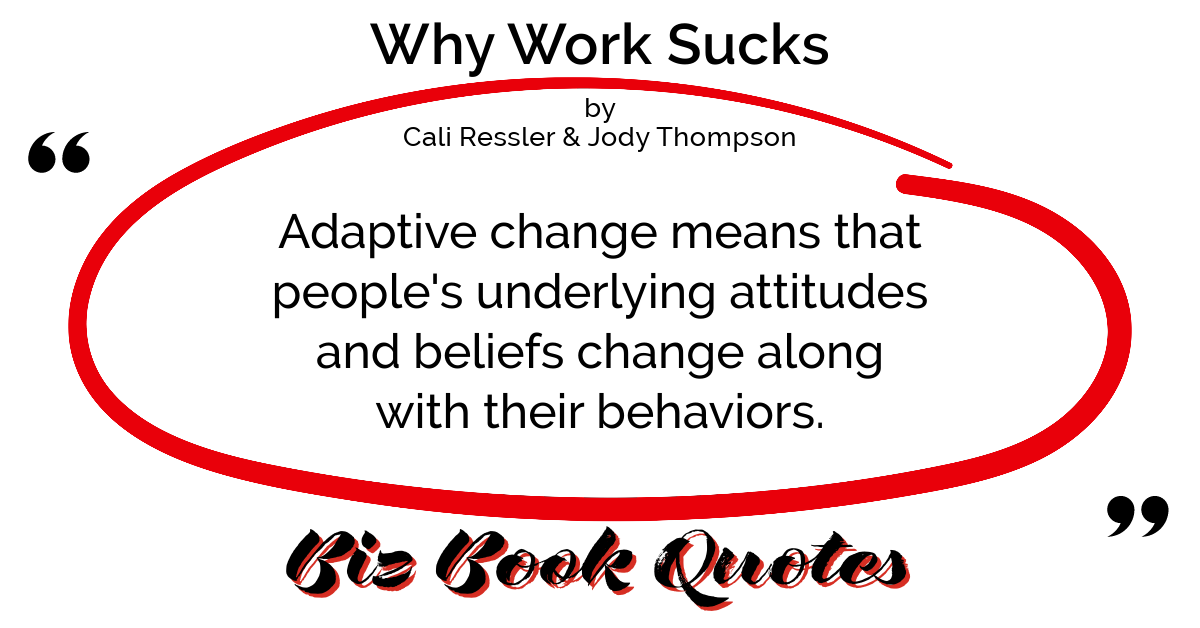 |
Adaptive change means that people’s underlying attitudes and beliefs change along with their behaviors.
|
079 |
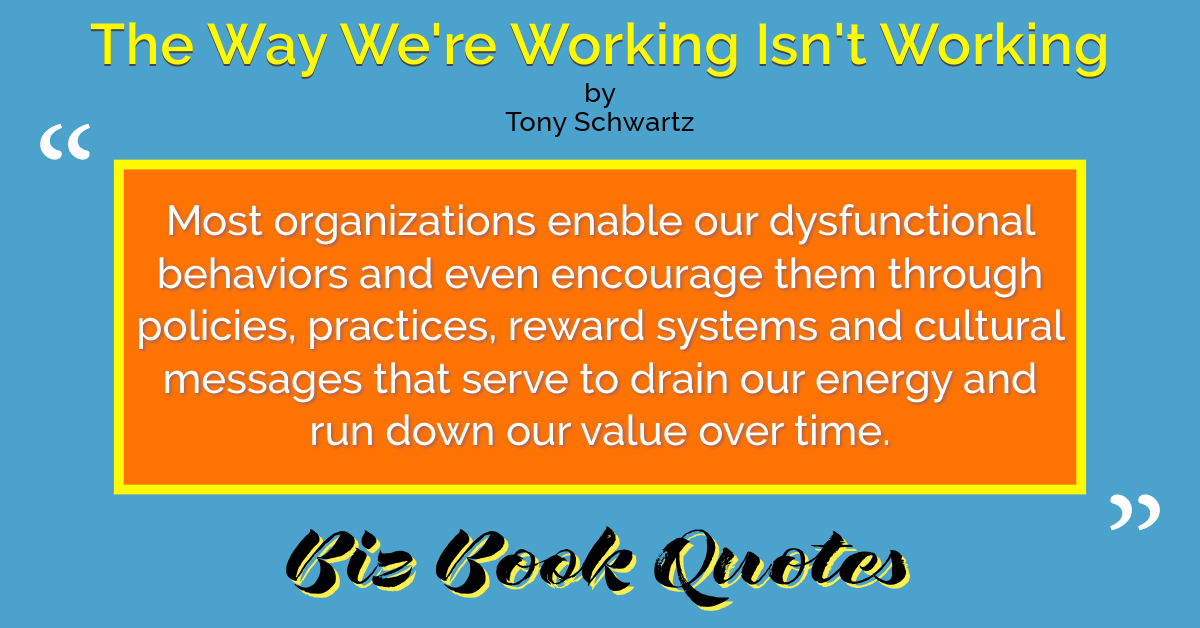 |
Most organizations enable our dysfunctional behaviors and even encourage them through policies, practices, reward systems and cultural messages that serve to drain our energy and run down our value over time.
|
010 |
 |
Values are aspirations, and they come to life only through our behaviors.
|
018 |
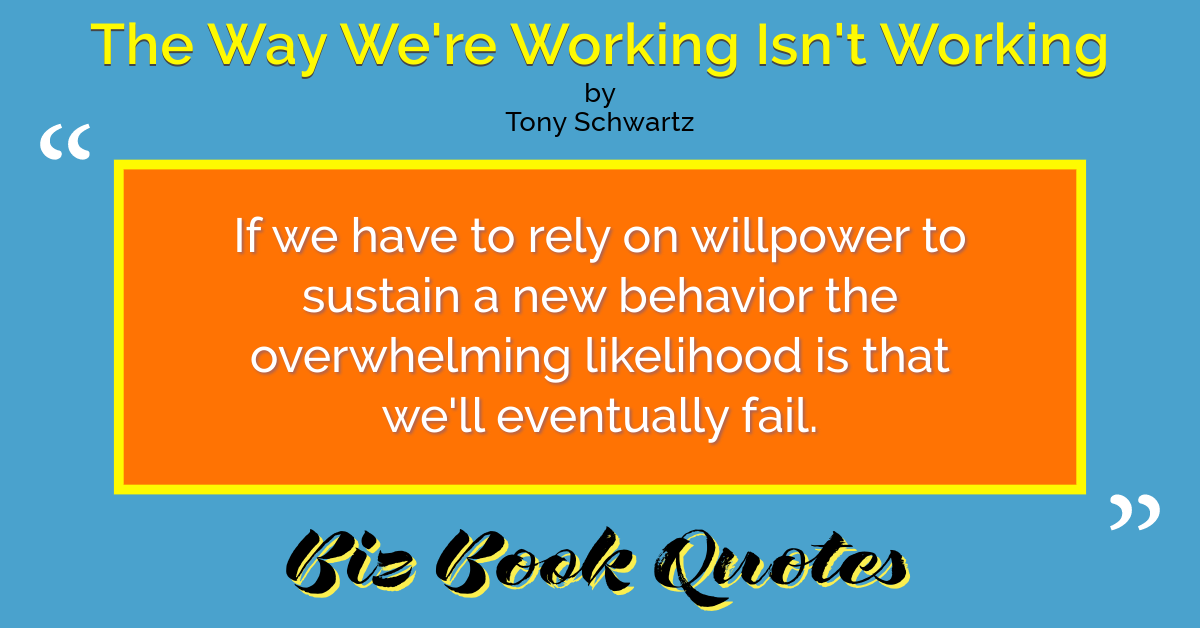 |
If we have to rely on willpower to sustain a new behavior the overwhelming likelihood is that we’ll eventually fail.
|
035 |
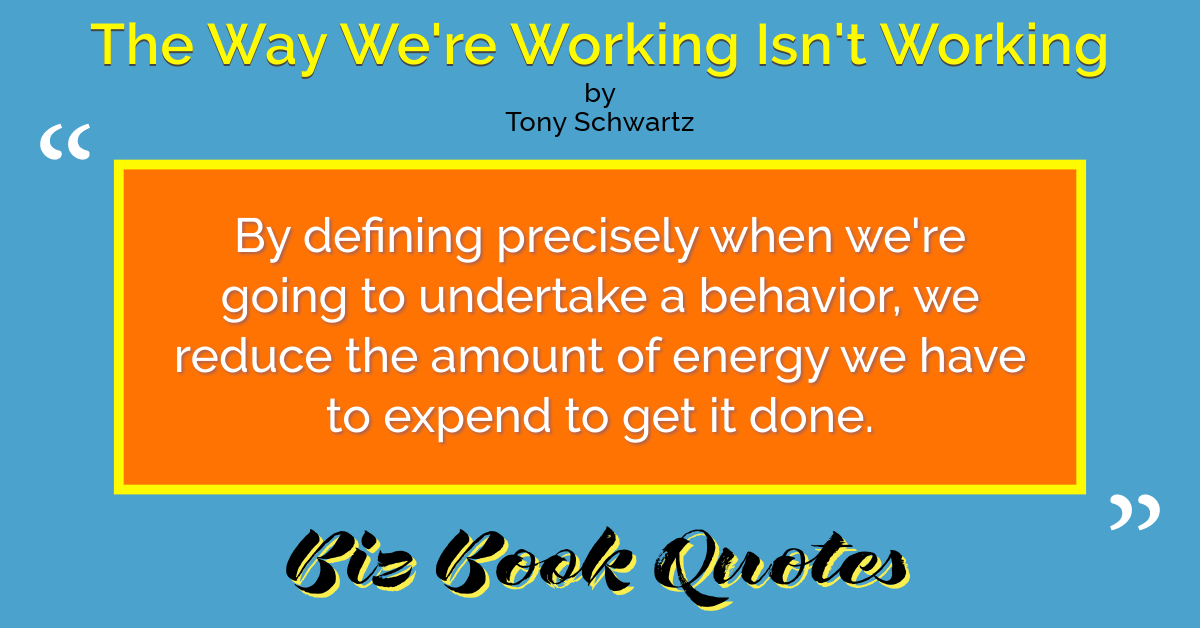 |
By defining precisely when we’re going to undertake a behavior, we reduce the amount of energy we have to expend to get it done.
|
039 |
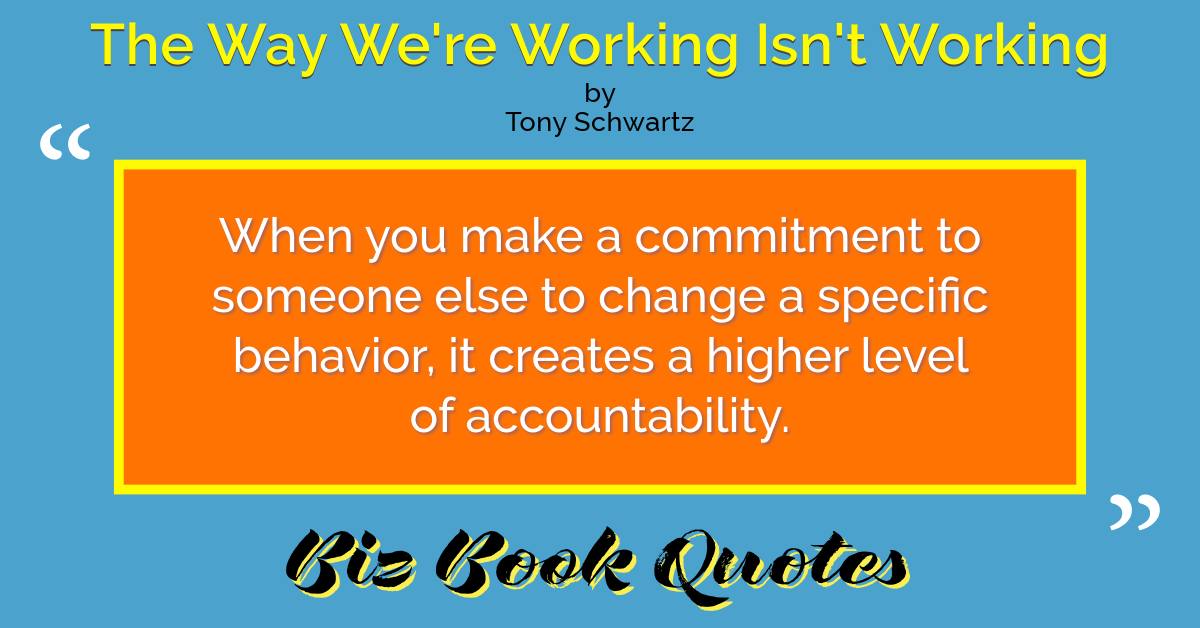 |
When you make a commitment to someone else to change a specific behavior, it creates a higher level of accountability.
|
043 |
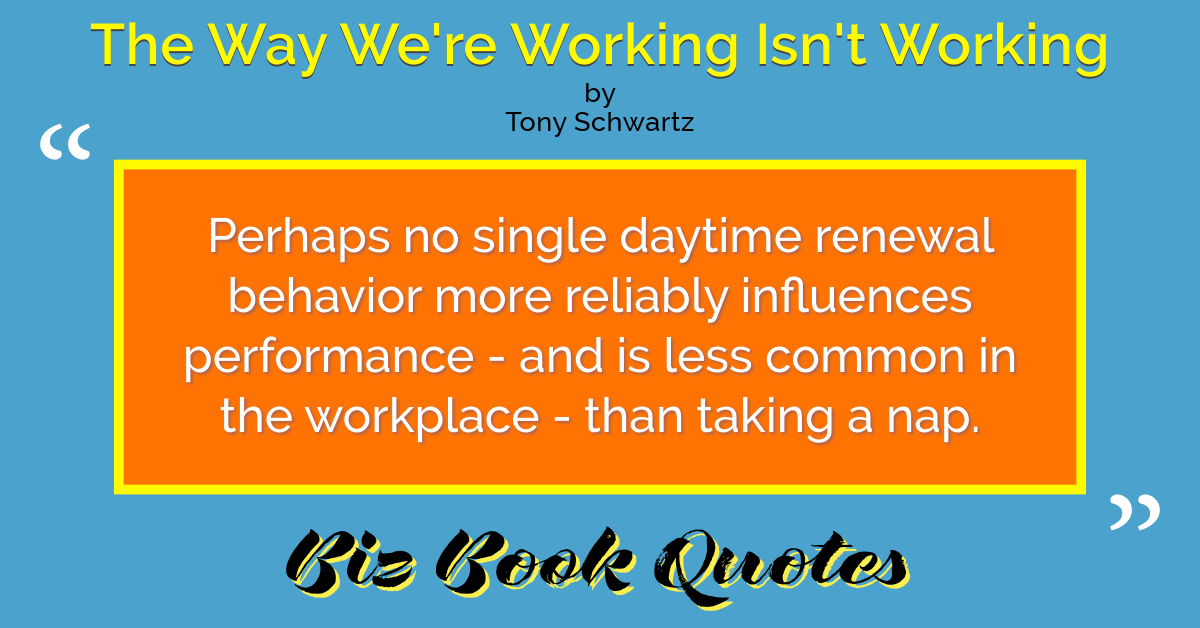 |
Perhaps no single daytime renewal behavior more reliably influences performance – and is less common in the workplace – than taking a nap.
|
072 |
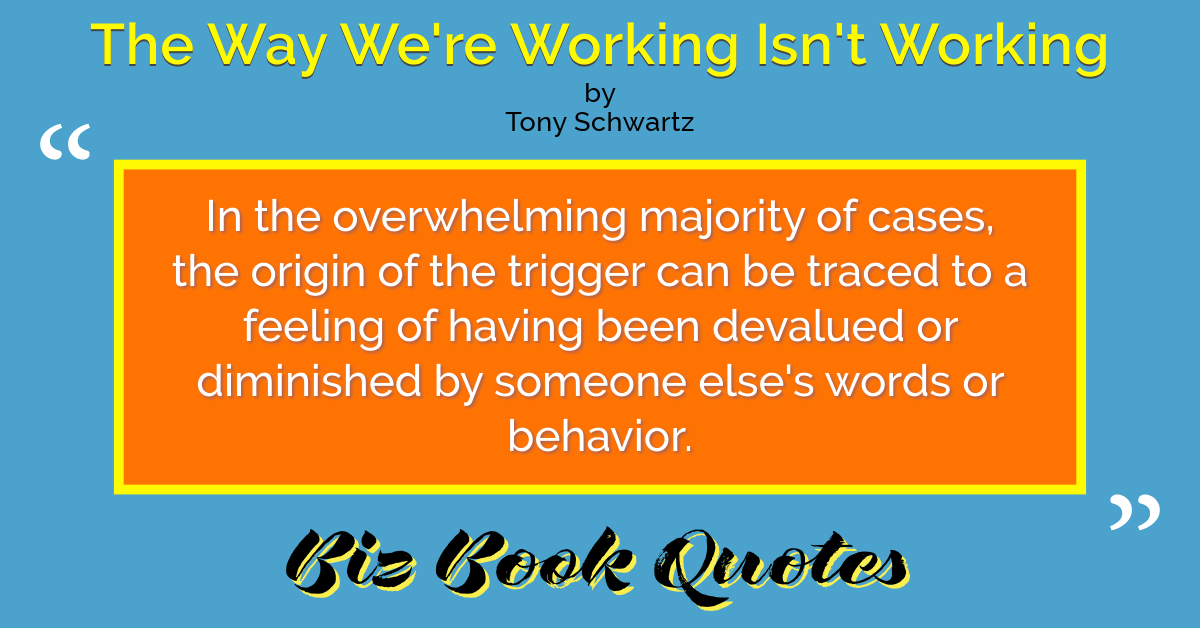 |
In the overwhelming majority of cases, the origin of the trigger can be traced to a feeling of having been devalued or diminished by someone else’s words or behavior.
|
137 |
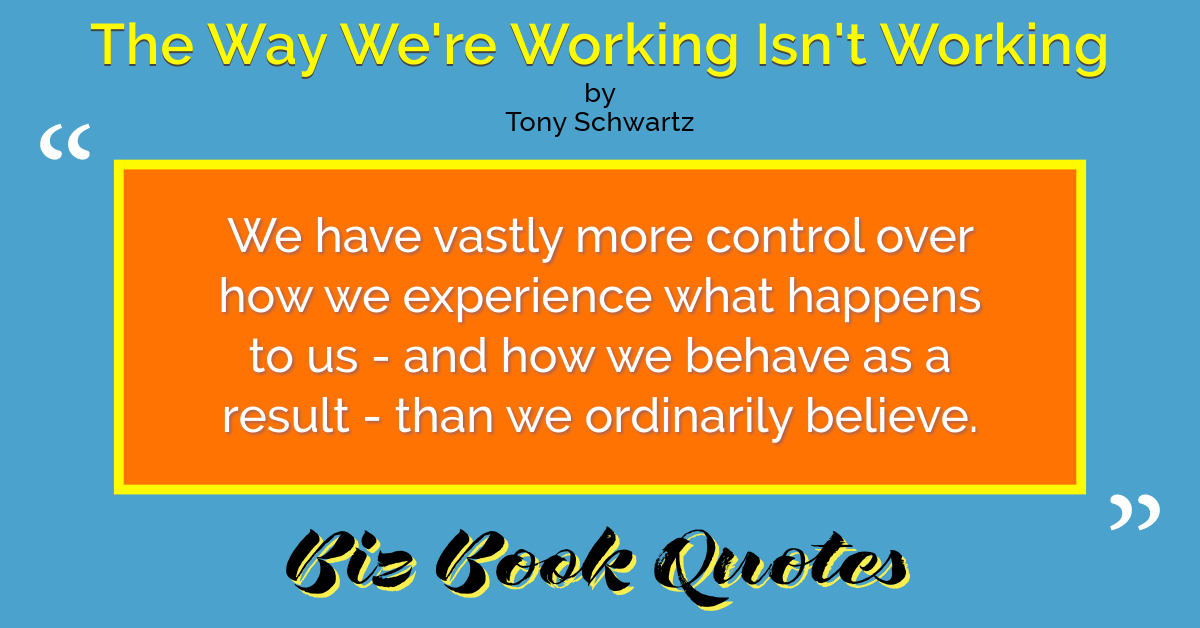 |
We have vastly more control over how we experience what happens to us – and how we behave as a result – than we ordinarily believe.
|
159 |